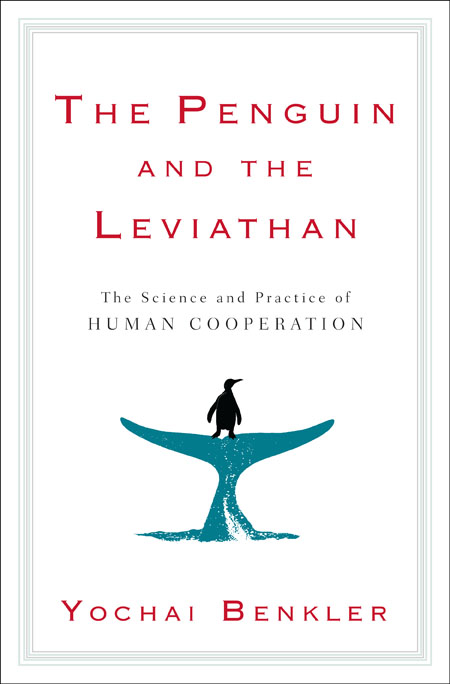Gérard Duménil, Dominique Lévy: The Crisis of Neoliberalism (2011)
Filed under book | Tags: · 2000s, capitalism, economy, finance, financial crisis, globalisation, money, neoliberalism, politics

This book examines “the great contraction” of 2007–2010 within the context of the neoliberal globalization that began in the early 1980s. This new phase of capitalism greatly enriched the top 5 percent of Americans, including capitalists and financial managers, but at a significant cost to the country as a whole. Declining domestic investment in manufacturing, unsustainable household debt, rising dependence on imports and financing, and the growth of a fragile and unwieldy global financial structure threaten the strength of the dollar. Unless these trends are reversed, the authors predict, the U.S. economy will face sharp decline.
Summarizing a large amount of troubling data, the authors show that manufacturing has declined from 40 percent of GDP to under 10 percent in thirty years. Since consumption drives the American economy and since manufactured goods comprise the largest share of consumer purchases, clearly we will not be able to sustain the accumulating trade deficits.
Rather than blame individuals, such as Greenspan or Bernanke, the authors focus on larger forces. Repairing the breach in our economy will require limits on free trade and the free international movement of capital; policies aimed at improving education, research, and infrastructure; reindustrialization; and the taxation of higher incomes.
Publisher Harvard University Press, 2011
ISBN 0674049888, 9780674049888
400 pages
Interview with Gérard Duménil: Part 1, Part 2 (The Real News Network)
authors (incl. additional material)
publisher
google books
Terry Eagleton: After Theory (2003)
Filed under book | Tags: · cultural theory, ethics, feminism, grand narratives, history, philosophy, politics, postmodernism, theory

As heralded everywhere from NPR to the pages of the New York Times Magazine, a new era is underway in our colleges and universities: after a lengthy tenure, the dominance of postmodern theory has come to an end. In this timely and topical book, the legendary Terry Eagleton (“one of [our] best-known public intellectuals.”-Boston Globe) traces the rise and fall of these ideas from the 1960s through the 1990s, candidly assessing the resultant gains and losses. What’s needed now, After Theory argues, is a return to the big questions and grand narratives. Today’s global politics demand we pay attention to a range of topics that have gone ignored by the academy and public alike, from fundamentalism to objectivity, religion to ethics. Fresh, provocative, and consistently engaging, Eagleton’s latest salvo will challenge everyone looking to better grasp the state of the world.
Publisher Basic Books, 2003
ISBN 0465017738, 9780465017737
231 pages
PDF (updated on 2012-7-31)
Comment (0)Yochai Benkler: The Penguin and the Leviathan: How Cooperation Triumphs Over Self-Interest (2011)
Filed under book | Tags: · biology, business, collaboration, economics, floss, neuroscience, politics, psychology, society, sociology, software, technology, web

What do Wikipedia, Zip Car’s business model, Barack Obama’s presidential campaign, and a small group of lobster fishermen have in common? They all show the power and promise of human cooperation in transforming our businesses, our government, and our society at large. Because today, when the costs of collaborating are lower than ever before, there are no limits to what we can achieve by working together.
For centuries, we as a society have operated according to a very unflattering view of human nature: that, humans are universally and inherently selfish creatures. As a result, our most deeply entrenched social structures – our top-down business models, our punitive legal systems, our market-based approaches to everything from education reform to environmental regulation – have been built on the premise that humans are driven only by self interest, programmed to respond only to the invisible hand of the free markets or the iron fist of a controlling government.
In the last decade, however, this fallacy has finally begun to unravel, as hundreds of studies conducted across dozens of cultures have found that most people will act far more cooperatively than previously believed. Here, Harvard University Professor Yochai Benkler draws on cutting-edge findings from neuroscience, economics, sociology, evolutionary biology, political science, and a wealth of real world examples to debunk this long-held myth and reveal how we can harness the power of human cooperation to improve business processes, design smarter technology, reform our economic systems, maximize volunteer contributions to science, reduce crime, improve the efficacy of civic movements, and more.
For example, he describes how:
• By building on countless voluntary contributions, open-source software communities have developed some of the most important infrastructure on which the World Wide Web runs
• Experiments with pay-as-you-wish pricing in the music industry reveal that fans will voluntarily pay far more for their favorite music than economic models would ever predic
• Many self-regulating communities, from the lobster fishermen of Maine to farmers in Spain, live within self-regulating system for sharing and allocating communal resources
• Despite recent setbacks, Toyota’s collaborative shop-floor, supply chain, and management structure contributed to its meteoric rise above its American counterparts for over a quarter century.
• Police precincts across the nation have managed to reduce crime in tough neighborhoods through collaborative, trust-based, community partnerships.
A must-read for anyone who wants to understand the dynamics of cooperation in 21st century life, The Penguin and the Leviathan not only challenges so many of the ways in which we live and work, it forces us to rethink our entire view of human nature.
Publisher Crown Publishing Group, 2011
ISBN 0307590194, 9780307590190
272 pages
PDF (EPUB)
Comment (0)
